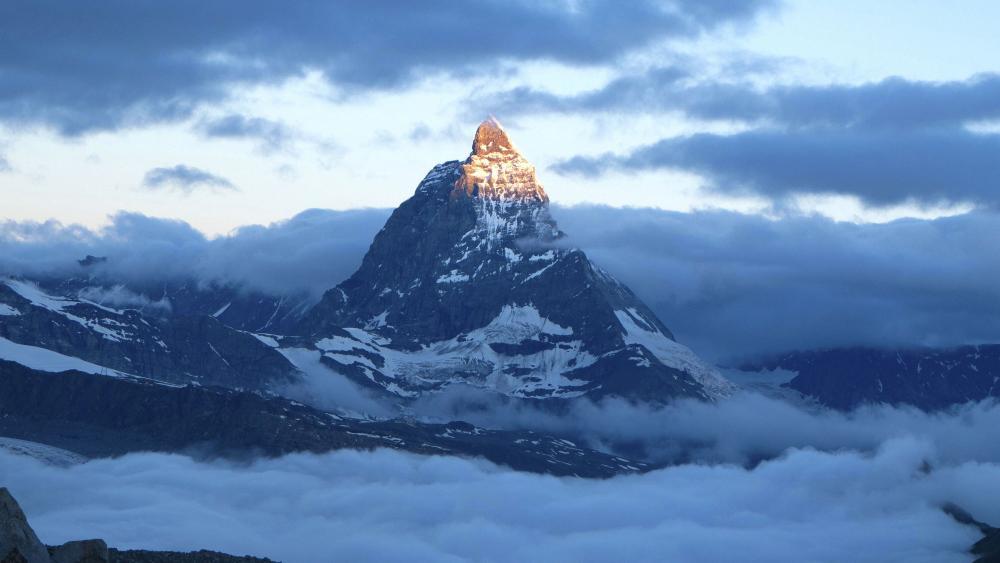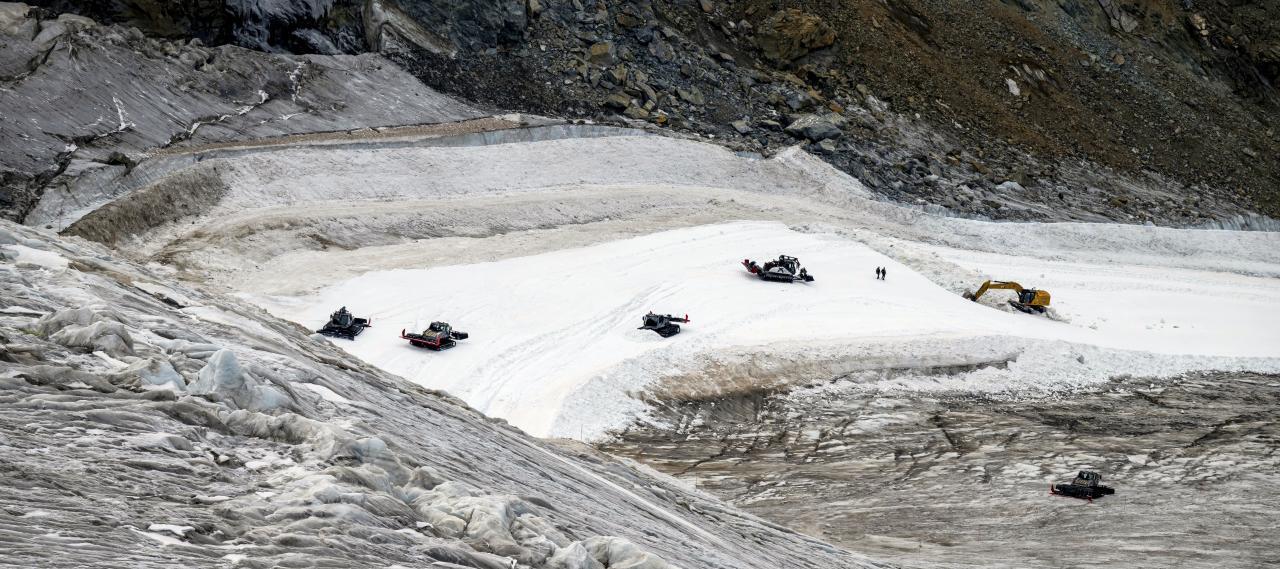
The discussion surrounding the upcoming ski race is as unique as the Matterhorn. © T. Stoiber
Trouble under the Matterhorn: How much sense does this World Cup have?
Insane speeds on two boards at 3800 meters above sea level. And on a track that runs through two countries. The Ski World Cup in Zermatt and Cervinia is supposed to be one big spectacle. At the same time, it is more controversial than any other event in winter sports.
08 November 2023
From: dpa/sportnews
The alpine ski stars will plunge down the “Gran Becca” at a speed of 135 kilometers per hour. The start at around 3800 meters is the highest in the World Cup. The 3,7 kilometer route from Zermatt in Switzerland to Cervinia in Italy is the first to cross two countries. But the new prestigious project of the World Ski Association (FIS) not only starts a year later than planned, but is also accompanied by huge discussions.
About the climate, about sustainability, about the racing calendar - it's about a lot again, but - as is so often the case these days - hardly about the sport itself. The expected fresh snow and wind may put a damper on the organizers' plans until the weekend anyway. Last season the premiere was canceled because there wasn't enough snow. From a PR perspective, another cancellation would be a fiasco.
“It is one of the most sustainable ski races ever” OC boss Franz Julen
Quite a few protagonists in the Alpine ski scene have long felt like they are pawns - things go back and forth between climate activists, conservationists, politicians, tourism associations and, last but not least, their own world association. The glaciers are melting and winter sports are increasingly coming under the microscope.
The new races on the Matterhorn would show that the local government “continues to give priority to tourism development over the preservation of our environment,” the Greens of the canton of Valais recently complained. Images of dredging work on the Theodul glacier caused outrage. Greenpeace Switzerland and other nature conservation organizations expressed the suspicion that some of the work was taking place outside the approved sports zone. The canton's building commission stopped the work.
The slope was shoveled and excavated for a long time. © www.picturedesk.com / JEAN-CHRISTOPHE BOTT
A small part of the originally planned slope was outside the zone permitted for skiing. The organizers corrected the route and apologized. “If we moved a little further than the border, then – again – we apologize, it was never our intention,” said organization boss Franz Julen on Swiss television. For him, the Matterhorn descent is “one of the most sustainable ski races ever”. He argues that 95 percent of the slope area already exists. Most of the riding takes place on glaciers and natural snow.
Sport is secondary
But the date of the races is also controversial. A week after the men, it's the women's turn. Many people ask themselves why in November and not in late winter. In Zermatt itself, however, there seems to be no more interest in relocating the event than in Sölden, where the season opened on the last weekend in October. The aim of the World Cup races is to boost ski tourism in both regions. Even Fis President Johan Eliasch recently surprisingly called for the start in Sölden to be pushed back even further. Which is not possible in the current calendar because of the new Matterhorn races. The situation is tricky. And sport continues to be a minor matter.Suggestions
Edit Profile
You have to sign into use the comment function.
Hermann Zanier
Sport is secondary because the usual lobbies get involved. But you can also focus on sport or talk about nothing else.
The speed of 135 km/h is presented as horrendous: if it is the top, it would be one of the slowest routes. As an average it would be great, but it depends on the route preparation. Above all, the Austrians will complain.
08.11.2023 14:25










Comments (1)